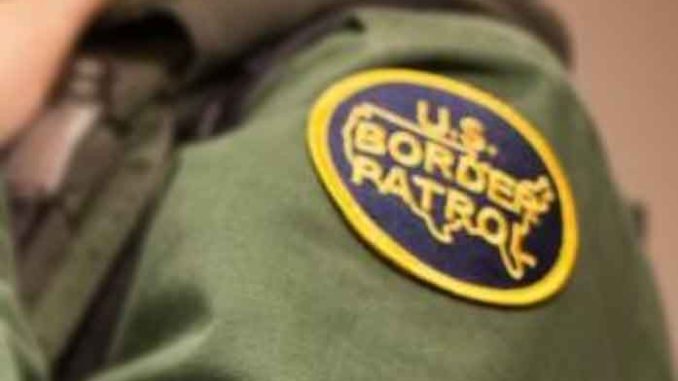
The attorneys for a Guatemala man accused of assaulting a U.S. Border Patrol agent in a treacherous area of the Baboquivari Mountains earlier this year has asked a federal judge to delay next month’s scheduled jury trial.
“Defense counsel needs additional time to prepare for trial, given challenges retaining experts critical to various aspects of the defense,” the Federal Public Defender’s Office wrote to U.S. Magistrate Judge Lynnette Kimmins on Nov. 18. “Counsel also recently identified new information they need to investigate that is pertinent to the theories of defense.”
Jorge Oliverio Moran-Can is charged with two counts of assault on a federal agent in remote area near New Field within the Tohono O’odham Nation on July 3. A third count in the indictment charges him with illegal entry into the U.S.
One of the assault counts alleges Agent Blaze Goldhahn suffered a “bodily injury” when he tried to take Moran-Can, 42, into custody after spending several hours tracking multiple suspected undocumented noncitizens (UNCs). The second assault count simply alleges Moran-Can used his shoulder to make physical contact with Goldhahn.
A conviction for assault on a federal officer resulting in bodily injury carries a maximum penalty of 20 years in prison, and up to a $250,000 fine, or both. But before a jury hears the case, Moran-Can’s defense team wants Kimmins to order the U.S. Attorney’s Office to specify the manner in which Moran-Can assaulted the agent resulting in an injury.
“Without this information, Mr. Moran-Can cannot assess whether his best defense is to hold the government to its burden to prove the conduct beyond a reasonable doubt, assert a theory of self-defense, or something else,” the motion argues.
The motion adds that the lack of specificity leaves Moran-Can vulnerable to the danger a non-unanimous jury verdict.
“Jurors may differ on which of Mr. Moran-Can’s alleged actions constituted the assault that caused injury to (Goldhahn). A number of jurors may find the initial
shove as the assault causing injury to (Goldhahn), while others some another action that came after the shove.”
Another defense motion asks Kimmins to suppress any statements Moran-Can made to USBP personnel before he was provided a Miranda warning at 6 p.m. The motion argues any comments made to Goldhahn -including any alleged apology and multiple requests to be released- were involuntary, as were any pre-Miranda statements Moran-Can made in response to questions from a USBP supervisor.
The motions provide a detailed recounting of what happened July 3 when Goldhahn was on his fifth day of temporary duty at the San Miguel Forward Operating Base out of the USBP’s Three Points Station. He and other agents were advised at 6:15 a.m. of four suspected UNCs about one-quarter mile north of the International Border Fence near Spine Trail.
The UNCs, located about seven miles northwest of Sasabe, were following the trail along a rugged ridge “covered with boulders, cacti, and thorn brush,” according to Goldhann’s report. There were areas with cliffs of ten feet or more within a few yards of the trail, the agent added.
Goldhahn visually confirmed the suspected UNCs carrying backpacks and wearing camouflage roughly 200 yards northeast of his location. Two other agents farther north began to pursue the suspects but lost sign of the suspects.
Goldhahn then began tracking footprints until he was about two miles from his starting point. It was the smell of garlic and body odor that led him to four UNCs hidden in a rugged area.
They immediately ran in several directions, leaving their backpacks behind, Goldhahn noted. By then, it was nearly 9:30 a.m., and the other USBP agents had already returned to their vehicles, according to the agent’s report.
The agent pursued one of the men but lost sight of him over a ridge. A short time later, Goldhahn spotted three men nearby and approached them with his baton drawn as “a visual deterrent.” The other USBP agents were likely 75 minutes away by foot, Goldhahn estimated.
Two of the men fled but one later identified as Moran-Can did not attempt to escape and was sitting on the ground as Goldhahn approached.
“Moran was being compliant at this time, so I put my baton away and reached out to place handcuffs on him,” the agent wrote. “At this point he stood up and shoved my torso with his left shoulder, causing me to fall backwards down the side of the ridge toward the jagged boulder below me. I reached around his torso with my arms to slow my fall and hopefully maintain control over him and prevent his escape.”
As the two men continued to struggle, Goldhahn threatened Moran-Can that he “would kill him” if he continued. The agent made the threat in hopes it would cause Moran-Can “to reconsider his actions and comply,” Goldhahn wrote. .
The threat, however, did not seem to have any effect, as the two continued to tussle as they slid and tumbled about 50 feet down the side of the ridge. At one point the weight of Goldhahn’s backpack caused him to land on his back with Moran-Can on top.
It was then, according to his report, that Goldhahn utilized his off-duty training in Brazilian Jiu-Jitsu to immobilize Moran-Can’s arms and control his upper body enough to get the handcuffs in place. It would take until nearly 12:30 p.m. for the two to traverse the difficult terrain to the nearest USBP transport vehicle.
Goldhahn was treated at the hospital in Sells for abrasions and unspecified injuries to his left knee and hip while Moran-Can was evaluated at the hospital before being transferred to a pretrial detention facility.
The U.S. Attorney’s Office does not object to Kimmins granting the motion to delay the jury trial currently scheduled to begin Dec. 13. The prosecutor has not yet filed a reply to the motion to suppress or the motion for a bill of particulars concerning the assault charge.
